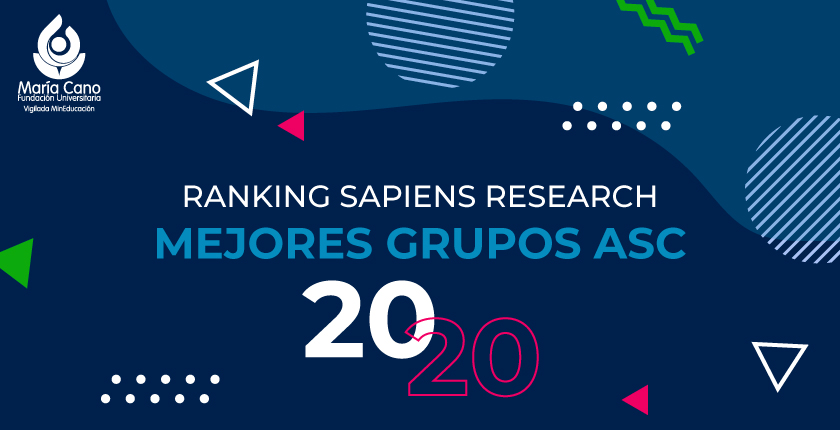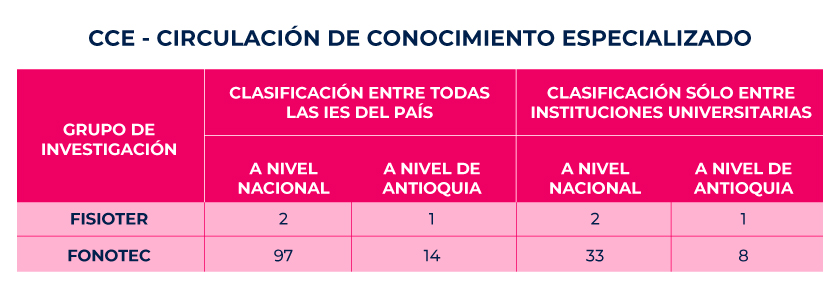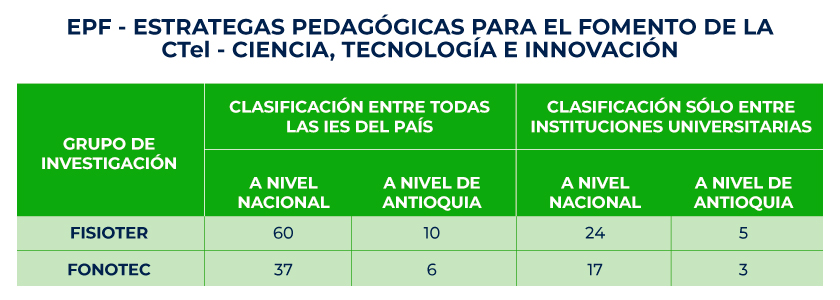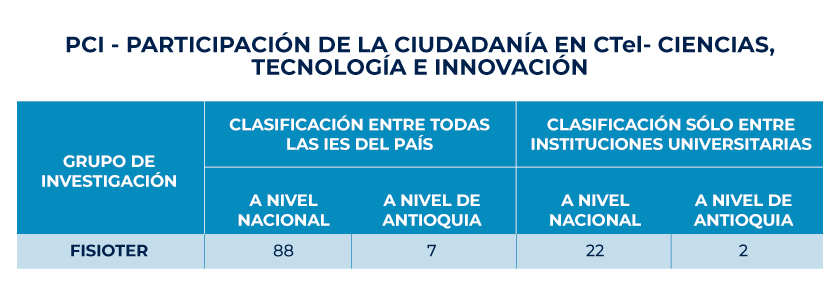Blog
Good news from the FISIOTER and FONOTEC Research Groups
- 23 octubre, 2020

The MINCIENCIAS Measurement Model, within the framework of the National Strategy for the Social Appropriation of Science, Technology and Innovation, defines the social appropriation of knowledge «as a process and social practice of collective construction of knowledge, whose members can be individuals, organizations or communities that are involved in interactions aimed at exchanging knowledge and experiences. In these processes, knowledge circulates, is discussed, put to the test, used and taken to daily life, through participation strategies in which discussion is guaranteed. Likewise, they provide members with the tools to define problems and methodologies, propose and test solutions, and make decisions based on elaborate and appropriate knowledge. » In this order of ideas, indicates MINCIENCIAS, «it is expected that the investigative processes incorporate inclusive practices, where researchers foster the active participation of citizens and communities with whom they jointly develop initiatives for the social appropriation of science, technology and innovation.»
What are the products of social appropriation of knowledge?
Minciencias recognizes as a result of the participation of research groups in processes of social appropriation of knowledge, the following products, structured in four (4) categories:
Circulation of specialized knowledge
- Scientific events
- Participation in knowledge networks
- Creation workshops
- Cultural and artistic events
- Working papers
- New genetic sequence
- Informative bulletins of research results
- Editions of scientific journal or books resulting from research
- Final investigation reports
- Consultancies (scientific-technological and art, architecture and design)
Pedagogical strategies to promote STeI
- Pedagogical program / strategy to promote STI. It includes the formation of networks to promote the social appropriation of knowledge
Citizen participation in CTeI and creation
- Citizen or community (s) participation in research projects.
- Space / event for citizen or community participation (s) in relation to the CTeI
Social communication of knowledge
- Knowledge communication strategies
- Generation of printed and digital, multimedia, virtual and audio content
The Best ASC-Sapiens Groups is the classification of the best Colombian research groups according to indicators of social appropriation of knowledge from the MINCIENCIAS Measurement Model. It is published every two years by the consulting company Sapiens Research, recognized by the international observatory IREG. According to their methodology, the best groups ranked because they met having the highest percentages in the four analysis variables: citizen participation in STI (PCI); pedagogical strategies for the promotion of STI (EPF); social communication of knowledge (CCO); and circulation of specialized knowledge (CCE). So far, 3 versions of the ASC ranking have been developed: in the years 2016, 2018 and 2020.
Classification of the Fisioter and Fonotec research groups in the ASC-2020 ranking
The ASC-2020 Ranking analyzed 5,207 research groups from all over the country, of which the ranking was built with 311 classified groups.
At the María Cano University Foundation, the Fisioter groups, assigned to the Physiotherapy and Fonotec programs, assigned to the Speech Therapy program, obtained the following classification, by product categories, compared to both the groups of all IES-Institutions of Higher Education (Universities, University Institutions, Technological Institutions and Professional Technical Institutions) of the country, as with only university institutions, at the national level and at the Antioquia level.



#MásMaríaCano
